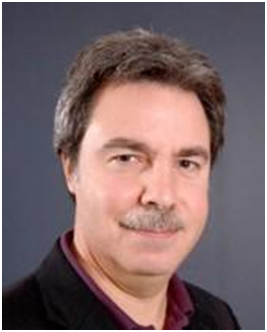
Christopher O’Leary
Senior Economist at the W.E Upjohn Institute for Employment Research
Christopher O’Leary’s research aims to identify ways of improving public employment policies, including unemployment insurance, as well as active labor market programs. As a senior economist at the W.E. Upjohn Institute for Employment Research, his research on unemployment insurance (UI) has examined experience rating, benefit adequacy, profiling, partial benefits and reemployment bonuses. O’Leary was a discussion leader on “the state of unemployment insurance financing after the great recession” at the Academy’s October 16, 2015 roundtable on Unemployment Insurance. His research on bonuses and UI partial benefits involved large field experiments with random trials in Washington State. He has evaluated job training, wage subsidies, public works, self-employment, and employment service programs for labor ministries in Canada and the economic transitions of Hungary, Poland, Serbia, and China. For the U.S. Department of Labor he developed a prototype job search assistance triage system for one-stop career centers under the Workforce Investment Act, analyzed practical aspects of implementing personal reemployment accounts, and examined the effectiveness of public employment services for recent recipients of Temporary Assistance to Needy Families (TANF).
“I have worked with Chris O’Leary since the 1980s when he began his great work on conducting, evaluating, and analyzing the UI Reemployment Bonus Experiments,” said Stephen Wandner, Visiting Fellow at the Urban Institute. “He is one of the foremost experts on the United States’ UI program and has conducted a wide variety of research on UI benefit payments, UI financing, and the provision of reemployment services for UI recipients and other workers. His international work has helped to develop and evaluate workforce programs around the world.”
O’Leary’s research has been sponsored by the World Bank, the International Labor Office, and the Organization for Economic Cooperation and Development. He has examined labor market information (LMI) systems for the Canadian employment ministry. He has also investigated the use of UI by recent recipients of TANF for the U.S. Department of Health and Human Services, as well as the linkages in use of UI and food stamps for the U.S. Department of Agriculture.
O’Leary’s papers have appeared in Journal of Human Resources, Journal of Policy Analysis and Management, Monthly Labor Review, International Labour Review, New England Economic Review, Economics of Transition, and Applied Economics. He is co-author of the Manual on Evaluation of Labour Market Policies in Transition Economies (Geneva: International Labour Office. 2001), and co-editor of research volumes on unemployment insurance, including Unemployment Insurance in the United States: Analysis of Policy Issues, as well as volumes on job training, and employment services. A member of the National Academy of Social Insurance since 1999, O’Leary completed undergraduate studies at the University of Massachusetts at Amherst and earned a doctorate in economics from the University of Arizona.
Christopher O’Leary’s research aims to identify ways of improving public employment policies, including unemployment insurance, as well as active labor market programs. As a senior economist at the W.E. Upjohn Institute for Employment Research, his research on unemployment insurance (UI) has examined experience rating, benefit adequacy, profiling, partial benefits and reemployment bonuses. O’Leary was a discussion leader on “the state of unemployment insurance financing after the great recession” at the Academy’s October 16, 2015 roundtable on Unemployment Insurance. His research on bonuses and UI partial benefits involved large field experiments with random trials in Washington State. He has evaluated job training, wage subsidies, public works, self-employment, and employment service programs for labor ministries in Canada and the economic transitions of Hungary, Poland, Serbia, and China. For the U.S. Department of Labor he developed a prototype job search assistance triage system for one-stop career centers under the Workforce Investment Act, analyzed practical aspects of implementing personal reemployment accounts, and examined the effectiveness of public employment services for recent recipients of Temporary Assistance to Needy Families (TANF).
“I have worked with Chris O’Leary since the 1980s when he began his great work on conducting, evaluating, and analyzing the UI Reemployment Bonus Experiments,” said Stephen Wandner, Visiting Fellow at the Urban Institute. “He is one of the foremost experts on the United States’ UI program and has conducted a wide variety of research on UI benefit payments, UI financing, and the provision of reemployment services for UI recipients and other workers. His international work has helped to develop and evaluate workforce programs around the world.”
O’Leary’s research has been sponsored by the World Bank, the International Labor Office, and the Organization for Economic Cooperation and Development. He has examined labor market information (LMI) systems for the Canadian employment ministry. He has also investigated the use of UI by recent recipients of TANF for the U.S. Department of Health and Human Services, as well as the linkages in use of UI and food stamps for the U.S. Department of Agriculture.
O’Leary’s papers have appeared in Journal of Human Resources, Journal of Policy Analysis and Management, Monthly Labor Review, International Labour Review, New England Economic Review, Economics of Transition, and Applied Economics. He is co-author of the Manual on Evaluation of Labour Market Policies in Transition Economies (Geneva: International Labour Office. 2001), and co-editor of research volumes on unemployment insurance, including Unemployment Insurance in the United States: Analysis of Policy Issues, as well as volumes on job training, and employment services. A member of the National Academy of Social Insurance since 1999, O’Leary completed undergraduate studies at the University of Massachusetts at Amherst and earned a doctorate in economics from the University of Arizona.
